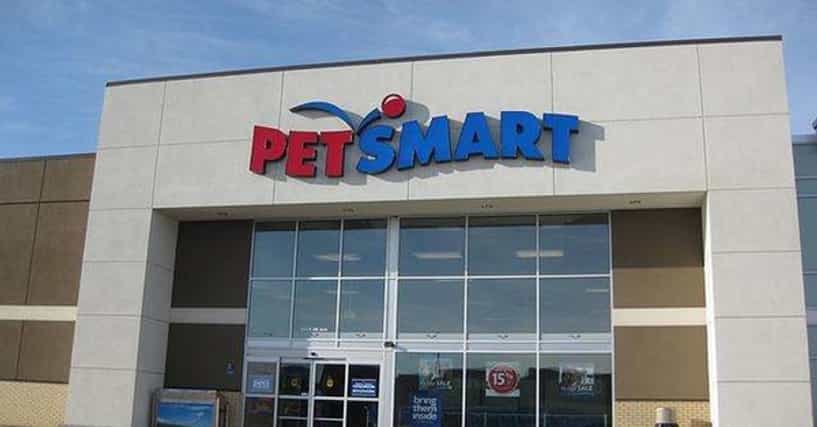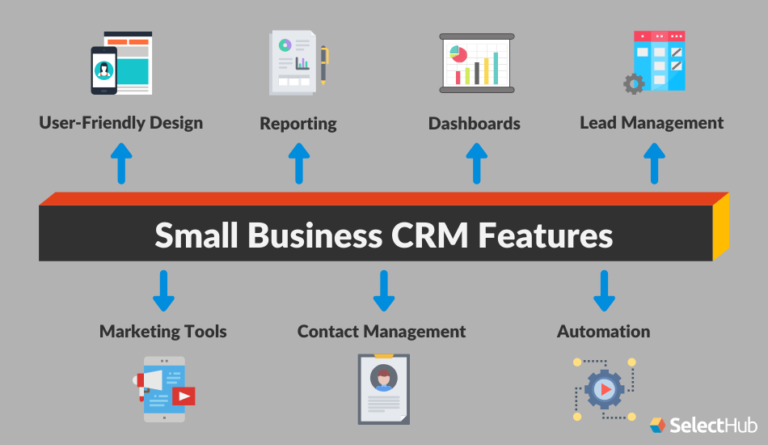Purrfectly Organized: The Ultimate CRM Guide for Small Pet Stores

Running a small pet store is a labor of love. You’re not just selling products; you’re building relationships with pet owners, offering advice, and becoming a trusted part of their furry, scaly, or feathered family’s lives. But amidst the wagging tails and chirping birds, the administrative tasks can quickly become overwhelming. That’s where a Customer Relationship Management (CRM) system steps in – your secret weapon for keeping everything organized and ensuring your pet store thrives.
Why Your Small Pet Store Needs a CRM
You might be thinking, “I’m a small business. Do I really need a CRM?” The answer, in most cases, is a resounding yes. Here’s why:
- Improved Customer Relationships: A CRM lets you store detailed information about your customers and their pets – names, breeds, birthdays, purchase history, preferences, and even any special needs. This allows you to personalize interactions, remember important details, and make customers feel valued.
- Streamlined Communication: Easily manage email marketing campaigns, send targeted promotions, and automate follow-up messages. No more manually tracking who needs a reminder about their pet’s grooming appointment!
- Enhanced Sales and Marketing: Identify your best customers, track sales trends, and tailor your marketing efforts to reach the right audience with the right message.
- Efficient Operations: Organize your customer data, track inventory, manage appointments, and streamline other business processes.
- Increased Customer Loyalty: By providing excellent service and building strong relationships, you’ll encourage repeat business and turn customers into loyal advocates for your pet store.
Key Features to Look for in a CRM for Pet Stores
Not all CRMs are created equal. When choosing a CRM for your small pet store, consider these essential features:
1. Contact Management
This is the foundation of any CRM. Look for features that allow you to:
- Store detailed customer profiles: Include contact information, pet details (name, breed, age, health issues), purchase history, preferences, and communication logs.
- Segment customers: Group customers based on their pet type, purchase habits, or other criteria to target specific promotions.
- Import and export data: Easily transfer customer information from existing spreadsheets or other systems.
2. Sales and Marketing Automation
Automation can save you significant time and effort. Look for features like:
- Email marketing: Design and send email newsletters, promotions, and automated follow-up messages.
- Targeted campaigns: Create email campaigns based on customer segments (e.g., “Dog Owners,” “Cat Owners,” “Customers who purchased dog food last month”).
- Appointment scheduling: Allow customers to book grooming appointments, training sessions, or vet consultations directly through the CRM.
- Lead management: Track potential customers and nurture them through the sales process.
3. Appointment Scheduling
If your pet store offers grooming, training, or veterinary services, an integrated appointment scheduling system is crucial. Features to look for include:
- Online booking: Allow customers to book appointments online through your website or social media.
- Automated reminders: Send automated appointment reminders via email or SMS to reduce no-shows.
- Staff scheduling: Manage staff availability and assign appointments accordingly.
- Integration with calendars: Sync appointments with your staff’s personal calendars.
4. Inventory Management (Optional, but often beneficial)
Some CRMs integrate with inventory management systems. This can be a huge time-saver if you sell products. Look for features like:
- Track inventory levels: Monitor stock levels and receive alerts when items are low.
- Manage product information: Store product details, prices, and descriptions.
- Generate reports: Analyze sales data and identify your best-selling products.
- Integration with point-of-sale (POS) systems: Seamlessly integrate with your existing POS system for a unified view of your business.
5. Reporting and Analytics
Data is your friend! A good CRM will provide reporting and analytics to help you understand your business. Look for features like:
- Sales reports: Track sales trends, identify your top customers, and measure the effectiveness of your marketing campaigns.
- Customer reports: Analyze customer behavior, identify customer segments, and track customer lifetime value.
- Customizable dashboards: Create custom dashboards to monitor the key metrics that matter most to your business.
6. Integrations
Consider how well the CRM integrates with other tools you use, such as:
- Email marketing platforms: (e.g., Mailchimp, Constant Contact)
- Social media platforms: (e.g., Facebook, Instagram)
- Payment processors: (e.g., Stripe, PayPal)
- Accounting software: (e.g., QuickBooks, Xero)
- POS systems: (e.g., Square, Clover)
Top CRM Systems for Small Pet Stores
Now, let’s explore some of the best CRM options specifically designed (or well-suited) for small pet stores:
1. HubSpot CRM
Why it’s great: HubSpot offers a free CRM plan that’s surprisingly powerful. It’s user-friendly, intuitive, and packed with features that are perfect for small businesses. Its free plan includes contact management, deal tracking, email marketing tools, and basic reporting. Paid plans unlock even more advanced features, such as sales automation, marketing automation, and advanced analytics.
Key Features for Pet Stores:
- Free Plan: A fantastic starting point for businesses on a budget.
- Contact Management: Excellent for storing customer details and interaction history.
- Email Marketing: Create and send targeted email campaigns.
- Automation: Automate basic tasks, like sending follow-up emails.
- Integration: Integrates with many popular apps, including email providers and social media platforms.
Potential drawbacks: The free plan has limitations on the number of contacts and emails you can send. Advanced features require a paid subscription.
2. Zoho CRM
Why it’s great: Zoho CRM is a comprehensive CRM solution with a wide range of features and customization options. It offers a free plan for up to three users, making it a good option for very small pet stores. Paid plans offer more features and scalability. Zoho CRM is particularly strong in sales automation and marketing.
Key Features for Pet Stores:
- Free Plan: Available for up to 3 users.
- Sales Automation: Automate sales processes, such as lead nurturing and deal tracking.
- Marketing Automation: Create and manage email campaigns, track website activity, and score leads.
- Customization: Highly customizable to fit your specific business needs.
- Integration: Integrates with a wide range of apps, including email providers, social media platforms, and accounting software.
Potential drawbacks: The interface can be a bit overwhelming for new users due to the sheer number of features. The free plan has limited functionality.
3. Pipedrive
Why it’s great: Pipedrive is a sales-focused CRM that’s known for its simplicity and user-friendliness. It’s a great choice if you want a CRM that helps you manage your sales pipeline effectively. While not specifically designed for pet stores, its features are easily adaptable to the pet store environment.
Key Features for Pet Stores:
- User-Friendly Interface: Easy to learn and use, even for those new to CRM systems.
- Visual Sales Pipeline: Helps you track deals and monitor your sales progress.
- Contact Management: Store customer details and track interactions.
- Sales Automation: Automate tasks, such as sending follow-up emails and creating tasks.
- Reporting: Provides sales reports and analytics.
Potential drawbacks: May lack some of the marketing automation features found in other CRMs. Primarily focused on sales, so it might not be ideal if you prioritize marketing automation.
4. Agile CRM
Why it’s great: Agile CRM is a well-rounded CRM that offers a good balance of features at an affordable price. It’s particularly strong in marketing automation and offers a free plan for up to 10 users. Its all-in-one approach makes it easy to manage your sales, marketing, and customer service from a single platform.
Key Features for Pet Stores:
- Free Plan: Available for up to 10 users.
- Marketing Automation: Create and manage email campaigns, automate lead nurturing, and track website activity.
- Sales Automation: Automate sales processes, such as lead scoring and deal tracking.
- Helpdesk: Manage customer support tickets.
- Integration: Integrates with a wide range of apps.
Potential drawbacks: The interface can feel a bit cluttered compared to some other CRMs. The free plan has limitations on the number of emails you can send.
5. Freshsales (by Freshworks)
Why it’s great: Freshsales is a sales-focused CRM that’s part of the Freshworks suite of products. It’s known for its ease of use and intuitive interface. It offers a free plan for a limited number of users and features. Freshsales excels at helping you manage your sales pipeline and close deals.
Key Features for Pet Stores:
- User-Friendly Interface: Easy to learn and use.
- Sales Pipeline Management: Helps you track deals and manage your sales process.
- Contact Management: Store customer details and track interactions.
- Email Integration: Integrate with your email provider.
- Reporting: Provides sales reports and analytics.
Potential drawbacks: May lack some of the advanced marketing automation features of other CRMs. Primarily focused on sales.
6. Salesflare
Why it’s great: Salesflare is a CRM designed specifically for small and medium-sized businesses. It’s known for its ease of use, automation capabilities, and focus on sales. It automatically gathers information from your email, social media, and other sources to keep your contact information up-to-date.
Key Features for Pet Stores:
- Automatic Data Entry: Automatically gathers information from your email, social media, and other sources.
- Sales Automation: Automate tasks, such as sending follow-up emails and creating tasks.
- Contact Management: Store customer details and track interactions.
- Reporting: Provides sales reports and analytics.
- User-Friendly Interface: Easy to learn and use.
Potential drawbacks: Can be more expensive than some other CRMs. May not have as many marketing automation features as other options.
Choosing the Right CRM: A Step-by-Step Guide
Selecting the perfect CRM for your pet store is like choosing the right food for a finicky feline – it requires careful consideration. Here’s a step-by-step guide to help you make the best decision:
- Assess Your Needs: Before diving in, take stock of your current processes and challenges. What are your biggest pain points? What are your goals for using a CRM? Do you need help with customer communication, appointment scheduling, inventory management, or all of the above?
- Define Your Budget: CRM systems range in price from free to several hundred dollars per month. Determine how much you’re willing to spend. Remember that free plans often have limitations.
- Evaluate Features: Make a list of the essential features you need. Prioritize the features that will have the biggest impact on your business. Consider features like contact management, sales automation, email marketing, appointment scheduling, and reporting.
- Research CRM Providers: Explore the CRM options mentioned above and others. Read reviews, compare features, and check pricing.
- Consider Integrations: Make sure the CRM integrates with the other tools you use, such as your email marketing platform, social media channels, and accounting software.
- Try Free Trials or Demos: Most CRM providers offer free trials or demos. Take advantage of these to test the software and see if it’s a good fit for your business.
- Choose a CRM and Implement it: Once you’ve chosen a CRM, implement it carefully. Import your existing customer data, set up your workflows, and train your staff on how to use the system.
- Provide Ongoing Training and Support: Your staff will need training to use the system effectively. Provide ongoing support and encourage them to ask questions.
- Track Results and Refine: Monitor the results of using the CRM and make adjustments as needed. Are you seeing an improvement in customer relationships, sales, or efficiency? Track your key metrics to make sure you’re getting the most out of your CRM.
Tips for a Smooth CRM Implementation
Once you’ve chosen your CRM, the real work begins: implementation. Here are some tips to ensure a smooth transition:
- Clean Up Your Data: Before importing your customer data, clean it up. Remove duplicate entries, correct any errors, and ensure that all information is accurate and up-to-date.
- Train Your Staff: Provide thorough training to your staff on how to use the CRM. Make sure they understand the features and how to use them to their full potential.
- Start Small: Don’t try to implement every feature at once. Start with the core features and gradually add more as your staff becomes more comfortable with the system.
- Customize the System: Tailor the CRM to your specific business needs. Customize the fields, workflows, and reports to match your processes.
- Integrate with Other Tools: Integrate the CRM with your other tools, such as your email marketing platform and accounting software, to streamline your workflow.
- Monitor Your Progress: Track your progress and make adjustments as needed. Are your staff members using the CRM effectively? Are you seeing the results you expected?
- Seek Support When Needed: Don’t hesitate to contact the CRM provider’s support team if you have any questions or issues.
Beyond the Basics: Advanced CRM Strategies for Pet Stores
Once you have a CRM in place and are comfortable with the basics, you can explore more advanced strategies to maximize its potential:
- Personalized Email Marketing: Segment your customers and send targeted email campaigns based on their pet type, purchase history, or other criteria. For example, send a reminder email to customers who have purchased dog food in the past month, or offer a special discount to customers who have adopted a new puppy.
- Automated Workflows: Create automated workflows to streamline your processes. For example, automatically send a welcome email to new customers, or trigger a follow-up email after a customer has made a purchase.
- Customer Segmentation: Divide your customers into segments based on their behavior, demographics, or purchase history. This allows you to tailor your marketing efforts and provide more personalized service.
- Loyalty Programs: Implement a loyalty program to reward your best customers. Track their purchases and offer exclusive discounts or rewards. This is a great way to encourage repeat business and build customer loyalty.
- Feedback and Reviews: Encourage customers to leave feedback and reviews. Use the CRM to track customer satisfaction and address any issues.
- Integration with Social Media: Integrate your CRM with your social media channels to track customer engagement and respond to inquiries.
- Cross-selling and Upselling: Use your CRM to identify opportunities to cross-sell and upsell. For example, if a customer purchases dog food, you might suggest a new toy or treat.
- Analyze Data: Regularly analyze your CRM data to identify trends and opportunities. Use the data to improve your marketing efforts, optimize your sales processes, and provide better customer service.
The Paw-sitive Impact: Real-World Examples
To truly understand the power of a CRM, let’s look at some real-world examples of how pet stores have used CRM to improve their businesses:
- Example 1: A small pet store uses its CRM to track customer purchase history. When a customer’s dog is due for a vaccination, the store automatically sends a reminder email, offering a discount on the vaccination and related products. This has significantly increased repeat business and customer loyalty.
- Example 2: A pet store offers grooming services and uses its CRM to manage appointments. Customers can book appointments online, receive automated reminders, and the store can easily manage its staff’s schedules. This has reduced no-shows and improved customer satisfaction.
- Example 3: A pet store uses its CRM to segment its customers and send targeted marketing campaigns. For example, they send a special offer on cat food to customers who have purchased cat-related products in the past. This has increased sales and improved customer engagement.
Conclusion: Unleash the Power of CRM for Your Pet Store
In the competitive world of pet stores, a CRM is no longer a luxury; it’s a necessity. It’s your partner in building stronger customer relationships, streamlining operations, and boosting your bottom line. By choosing the right CRM and implementing it effectively, you can create a thriving pet store that keeps customers coming back for more.
So, take the leap and start exploring the world of CRM. Your furry, scaly, and feathered friends – and your business – will thank you!



